March 28, 2017 •
Kentucky’s Governor Signs Campaign Finance Bill
Gov. Matt Bevin approved changes to a campaign finance law yesterday, March 27, 2017. Senate Bill 75 doubles current contribution limits for individuals giving to candidates, state executive committees, and caucus campaign committees. The limit for individuals giving to PACs […]
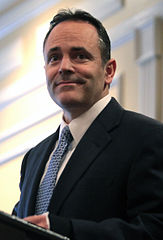 Gov. Matt Bevin approved changes to a campaign finance law yesterday, March 27, 2017.
Gov. Matt Bevin approved changes to a campaign finance law yesterday, March 27, 2017.
Senate Bill 75 doubles current contribution limits for individuals giving to candidates, state executive committees, and caucus campaign committees. The limit for individuals giving to PACs also increases from $1,500 to $2,000.
Contributions to candidates and PACs will be indexed for inflation every odd-numbered year based on the Consumer Price Index. The bill also creates a single reporting threshold of $3,000 for campaign finance reports.
The bill is effective June 28, 2017, or 90 days from adjournment sine die of the regular session of the Legislature.
March 15, 2017 •
Kentucky Lawmakers Pass Campaign Finance Bill
The Kentucky Legislature passed a bill this week to double the limits on contributions from individuals and PACs to candidates, state executive committees, and caucus campaign committees. Senate Bill 75, according to supporters, provides greater transparency and will make it […]
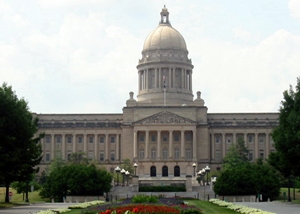 The Kentucky Legislature passed a bill this week to double the limits on contributions from individuals and PACs to candidates, state executive committees, and caucus campaign committees.
The Kentucky Legislature passed a bill this week to double the limits on contributions from individuals and PACs to candidates, state executive committees, and caucus campaign committees.
Senate Bill 75, according to supporters, provides greater transparency and will make it easier for everyday citizens to compete with dark money while running for office.
Opponents, however, believe the focus should be on curbing dark money and adding more money to the equation will further erode public trust.
Nonetheless, the bill will now be sent to the governor for review.
February 22, 2017 •
Kentucky Senate Passes Bill to Double Contribution Limits
A bill to raise the limit on what individuals may contribute to campaigns has passed the Kentucky Senate. Senate Bill 75, sponsored by Sen. Damon Thayer, doubles the limit for individuals giving to candidates, caucus committees, and political parties. The […]
 A bill to raise the limit on what individuals may contribute to campaigns has passed the Kentucky Senate.
A bill to raise the limit on what individuals may contribute to campaigns has passed the Kentucky Senate.
Senate Bill 75, sponsored by Sen. Damon Thayer, doubles the limit for individuals giving to candidates, caucus committees, and political parties.
The bill, similar to a measure introduced by Thayer in the past, also creates an additional disclosure report 60 days prior to an election. The bill has been transmitted to the House for consideration.
February 15, 2017 •
Missouri Ethics Commission Issues Advisory Opinions Regarding Constitutional Amendment 2
The Missouri Ethics Commission recently released a series of advisory opinions related to Constitutional Amendment 2. The amendment, passed by the voters in the November election, amended state campaign finance laws. The new advisory opinions address issues not fully articulated […]
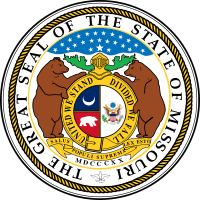 The Missouri Ethics Commission recently released a series of advisory opinions related to Constitutional Amendment 2. The amendment, passed by the voters in the November election, amended state campaign finance laws.
The Missouri Ethics Commission recently released a series of advisory opinions related to Constitutional Amendment 2. The amendment, passed by the voters in the November election, amended state campaign finance laws.
The new advisory opinions address issues not fully articulated in the constitutional amendment. Opinions confirm: contribution limits do not apply to local candidates; the definitions of continuing and political action committees are substantially the same and are interpreted to be the same; and contribution limits only apply to continuing or political action committees if a contribution to the committee is designated for a specific candidate.
Another opinion finds a limited liability company to be a corporation for the purpose of the corporate contribution ban if the LLC is an eligible entity electing to be classified as a corporation under the federal tax code.
Other opinions relate to the eligibility of foreign corporations contributing to Missouri PACs, the application of the $25,000 per election aggregate limit to be received by a political party, and the applicability of contribution limits to state legislative campaign committees.
February 14, 2017 •
Oregon Lawmakers to Consider Pay-to-Play Bills
Rep. Knute Buehler is set to introduce two bills to restrict pay-to-play politics. House Joint Resolution 17 seeks to amend the Oregon Constitution to ban corporations, nonprofits and labor unions from making contributions to candidates or political action committees. House […]
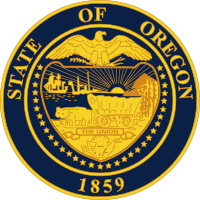 Rep. Knute Buehler is set to introduce two bills to restrict pay-to-play politics.
Rep. Knute Buehler is set to introduce two bills to restrict pay-to-play politics.
House Joint Resolution 17 seeks to amend the Oregon Constitution to ban corporations, nonprofits and labor unions from making contributions to candidates or political action committees.
House Bill 2914 would require bidders on state contracts to disclose their five greatest campaign contributions in the state.
If passed, the measures would likely face legal challenges on the basis of free speech restrictions.
February 9, 2017 •
Vermont Increases Contribution Limits
Vermont has increased contribution limits to candidates, PACs, and political parties. By statute, contribution limits are reevaluated and adjusted based on the Consumer Price Index. A 2.1 percent increase was implemented allowing statewide candidates and PACs to receive $4,080 per […]
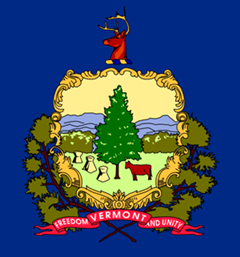 Vermont has increased contribution limits to candidates, PACs, and political parties.
Vermont has increased contribution limits to candidates, PACs, and political parties.
By statute, contribution limits are reevaluated and adjusted based on the Consumer Price Index. A 2.1 percent increase was implemented allowing statewide candidates and PACs to receive $4,080 per election cycle, state Senate candidates to receive $1,530, and state representative candidates to receive $1,020.
Each limit applies to contributions from a single source or PAC.
This change is effective for two years, and thereafter, increases will apply for the term of two two-year general election cycles.
February 6, 2017 •
FEC Adjusts Lobbyist Bundling Disclosure Threshold Amount
On Friday, February 3, the Federal Election Commission (FEC) published its price index adjustments for expenditure limitations and the federal lobbyist bundling disclosure threshold. The lobbyist bundling disclosure threshold has increased for 2017 from $17,600 to $17,900. This threshold amount […]
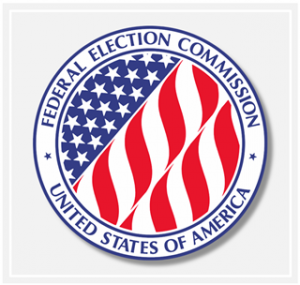 On Friday, February 3, the Federal Election Commission (FEC) published its price index adjustments for expenditure limitations and the federal lobbyist bundling disclosure threshold.
On Friday, February 3, the Federal Election Commission (FEC) published its price index adjustments for expenditure limitations and the federal lobbyist bundling disclosure threshold.
The lobbyist bundling disclosure threshold has increased for 2017 from $17,600 to $17,900. This threshold amount is adjusted annually. Federal law requires authorized committees of federal candidates, leadership political action committees (PACs), and political party committees to disclose contributions bundled by lobbyists and lobbyists’ PACs.
Additionally, the FEC published its adjusted Coordinated Party Expenditure Limits for political parties for 2017.
February 2, 2017 •
Let the Fundraising Begin: FEC Publishes Contribution Limits for 2017-2018 Election Cycle
Today, the Federal Election Commission (FEC) published the 2017-2018 election cycle contribution limits, which have been indexed for inflation. As required by the Bipartisan Campaign Reform Act of 2002, the FEC must adjust certain contribution limits every two years. The […]
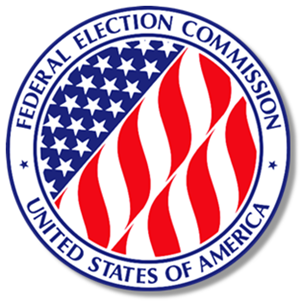 Today, the Federal Election Commission (FEC) published the 2017-2018 election cycle contribution limits, which have been indexed for inflation. As required by the Bipartisan Campaign Reform Act of 2002, the FEC must adjust certain contribution limits every two years.
Today, the Federal Election Commission (FEC) published the 2017-2018 election cycle contribution limits, which have been indexed for inflation. As required by the Bipartisan Campaign Reform Act of 2002, the FEC must adjust certain contribution limits every two years.
The individual and nonmulticandidate PAC contribution limit to federal candidates will remain at $2,700 for both primary and general elections, allowing for a total of $5,400 for a federal candidate. The limits on contributions by individuals to national party committees has increased from $33,400 to $33,900 per calendar year.
Individuals may now contribute $101,700 per calendar year to committees of a national political party for presidential nominating conventions, to committees of a national political party for preparation for and the conduct of election recounts and contests and other legal proceedings, and to committees of a national political party for the construction, purchase, renovation, operation, and furnishing of one or more buildings for party headquarters.
The new limits are effective retroactively to January 1, 2017.
January 13, 2017 •
FEC Unable to Agree on Rulemaking Concerning Foreign Influence on Political Spending
On January 12, the Federal Election Commission (FEC) was unable to agree on a policy to clarify when and if a U.S. domestic subsidiary corporation of a foreign national is illegally involved in political activity. Federal law prohibits foreign nationals from […]
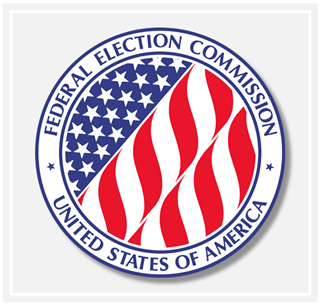 On January 12, the Federal Election Commission (FEC) was unable to agree on a policy to clarify when and if a U.S. domestic subsidiary corporation of a foreign national is illegally involved in political activity.
On January 12, the Federal Election Commission (FEC) was unable to agree on a policy to clarify when and if a U.S. domestic subsidiary corporation of a foreign national is illegally involved in political activity.
Federal law prohibits foreign nationals from directly or indirectly making contributions, donations, expenditures, independent expenditures, and disbursements in connection with federal, state, or local elections. FEC regulations also prohibit foreign nationals from directing, controlling, or participating in the decision-making process of any person, such as a corporation, with regards to decisions concerning the making of contributions, donations, expenditures, or disbursements in connection with elections in the U.S.
Additionally, the FEC was unable to reach an agreement on the creation of a safe harbor for political committees to accept corporate contributions deemed not to have come from foreign national sources.
In response, Vice Chair Caroline C. Hunter and Commissioners Matthew S. Petersen and Lee E. Goodman issued a statement.
A previous attempt to reach an agreement on this issue in September also failed.
December 29, 2016 •
Businesses Sue Over Missouri Constitutional Amendment 2
Constitutional Amendment 2, a reform measure approved in November, is facing a second legal challenge in federal court from plaintiffs who claim the amendment unconstitutionally restricts free speech and association. The suit was filed by Farmers State Bank and Herzog […]
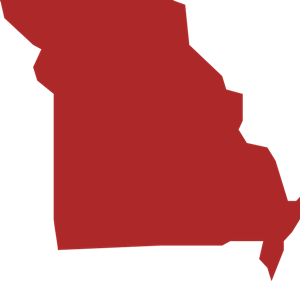 Constitutional Amendment 2, a reform measure approved in November, is facing a second legal challenge in federal court from plaintiffs who claim the amendment unconstitutionally restricts free speech and association.
Constitutional Amendment 2, a reform measure approved in November, is facing a second legal challenge in federal court from plaintiffs who claim the amendment unconstitutionally restricts free speech and association.
The suit was filed by Farmers State Bank and Herzog Services, with additional plaintiffs including the American Democracy Alliance, Missourians for Worker Freedom, Freedom PAC, the Free and Fair Election Fund, and John Elliott, a citizen. Plaintiffs contend the amendment’s contribution restrictions impermissibly prohibit corporate (including nonprofit) contributions in ballot measure and judicial retention campaigns.
A separate suit was filed by the Association of Missouri Electrical Cooperatives earlier in December.
December 7, 2016 •
Maine Ethics Commission Proposes Potential Legislation
The staff of the Maine Ethics Commission (MEC) will propose legislation to the Commission on Governmental Ethics and Election Practices at a meeting on December 8, 2016, to enhance the public’s understanding of major contributors to political committees. The statutory […]
 The staff of the Maine Ethics Commission (MEC) will propose legislation to the Commission on Governmental Ethics and Election Practices at a meeting on December 8, 2016, to enhance the public’s understanding of major contributors to political committees.
The staff of the Maine Ethics Commission (MEC) will propose legislation to the Commission on Governmental Ethics and Election Practices at a meeting on December 8, 2016, to enhance the public’s understanding of major contributors to political committees.
The statutory proposal would require national organizations contributing more than $100,000 to Maine-based political committees to file a one-time report with MEC detailing basic contact information about the national organization, a responsible officer, the form of the organization, and a description of its purpose. The report would require the organization to provide the top five sources of funding received during the previous 12 months. Failure to file a report could result in a $50,000 penalty.
If the statutory proposal is approved by the commissioners, it would then go to the Legislature for consideration.
December 1, 2016 •
Ontario Passes Campaign Finance Reform Bill
The Election Finances Statute Law Amendment Act was passed by the Legislative Assembly on December 1, 2016. It was introduced after an investigation into pay-to-play fundraising and cash for access scandals. The investigation revealed that corporations and lobbyists had spent […]
 The Election Finances Statute Law Amendment Act was passed by the Legislative Assembly on December 1, 2016. It was introduced after an investigation into pay-to-play fundraising and cash for access scandals.
The Election Finances Statute Law Amendment Act was passed by the Legislative Assembly on December 1, 2016. It was introduced after an investigation into pay-to-play fundraising and cash for access scandals.
The investigation revealed that corporations and lobbyists had spent up to $10,000 to buy time with cabinet members in seeking policy decisions and contracts. The new amendment will prohibit all provincial politicians, candidates, and senior political staffers from attending fundraising events and ban contributions from corporations and unions.
In addition to these prohibitions, donations from individuals are limited to $1,200 per political party annually, down from $9,975 under the current system. Third-parties, who currently face no spending restrictions on advertising, will be capped at $100,000 per election period and $600,000 in the six months before a general election is called. A spending cap will also be placed on political party advertising at $1 million in the six months before a general election is called.
The bill was passed despite negative feedback regarding loopholes in the legislation. It will go into effect on January 1, 2017.
November 23, 2016 •
2016 NCSL State Vote Recaps Campaign Finance Ballot Initiatives
The 2016 election was about a lot more than just a battle between Donald Trump and Hillary Clinton. Across the country, states asked voters to consider a variety of ballot measures, including a few campaign finance issues. At the 2016 National Conference […]

The 2016 election was about a lot more than just a battle between Donald Trump and Hillary Clinton. Across the country, states asked voters to consider a variety of ballot measures, including a few campaign finance issues. At the 2016 National Conference of State Legislatures (NCSL) State Vote seminar held in Washington, D.C., Wendy Underhill recapped a number of those issues and the decisions that voters made on Nov. 8.
Both California and Washington held votes related to the United States Supreme Court ruling in Citizens United vs. FEC. Voters approved ballot measures that urged government leaders to use their power to work to overturn the Supreme Court’s ruling, possibly through a constitutional amendment, if possible.
In Missouri, voters approved an initiative establishing limits on campaign contributions to candidates for state or judicial office; while in South Dakota, voters approved an initiative to create a publicly funded campaign finance program and an ethics commission.
For more from the NCSL State Vote seminar you can view some of the presentation slides here. To see a list of ballot measure election results of interest to government relations professionals, take a look at our 2016 election dashboard.
November 22, 2016 •
FPPC Approves Amendments to Increase Gift and Campaign Contribution Limits
On Nov. 17, California’s Fair Political Practices Commission (FPPC) approved regulations to make biennial cost of living adjustments to campaign contribution and gift limits that will apply from Jan. 1, 2017, through Dec. 31, 2018. The newly amended regulations change […]
 On Nov. 17, California’s Fair Political Practices Commission (FPPC) approved regulations to make biennial cost of living adjustments to campaign contribution and gift limits that will apply from Jan. 1, 2017, through Dec. 31, 2018.
On Nov. 17, California’s Fair Political Practices Commission (FPPC) approved regulations to make biennial cost of living adjustments to campaign contribution and gift limits that will apply from Jan. 1, 2017, through Dec. 31, 2018.
The newly amended regulations change the gift limit from $460 to $470 and makes increases to campaign contribution limits.
State and Federal Communications, Inc. provides research and consulting services for government relations professionals on lobbying laws, procurement lobbying laws, political contribution laws in the United States and Canada. Learn more by visiting stateandfed.com.


